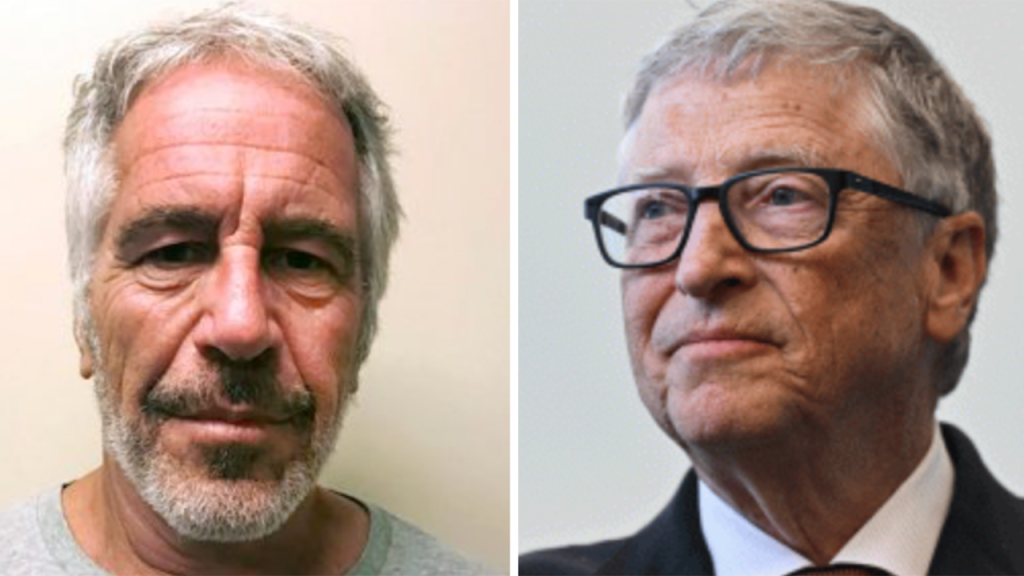Bill Gates, the co-founder of Microsoft and renowned philanthropist, has once again addressed his controversial association with the convicted sex offender Jeffrey Epstein, reiterating his regret and characterizing his interactions with Epstein as a “huge mistake.” In a recent interview with the Wall Street Journal, coinciding with the release of his new book, “Source Code: My Beginnings,” Gates candidly admitted his foolishness in engaging with Epstein, attributing his decision to a misplaced hope that Epstein could assist his global health philanthropy endeavors. Gates acknowledged the gravity of his error, stating unequivocally that his association with Epstein yielded no benefits and proved to be a detrimental misjudgment.
The connection between Gates and Epstein, a notorious financier and convicted sex offender, dates back to 2010, following Epstein’s 2008 guilty plea to procuring underage girls for prostitution. Reports indicate that Epstein actively sought a relationship with Gates to rehabilitate his tarnished public image. Gates, seemingly unaware of or perhaps downplaying the severity of Epstein’s crimes, engaged with him on multiple occasions, ostensibly with the intention of leveraging Epstein’s network for philanthropic purposes. This association continued until Epstein’s death in 2019 while awaiting trial on sex trafficking charges. Epstein’s death, ruled a suicide by hanging, brought further scrutiny to his network and the individuals he associated with, intensifying the criticism directed at Gates.
Gates’ admission of his misguided association with Epstein highlights the complexities of navigating relationships, particularly in high-profile circles. His explanation, centered around the pursuit of philanthropic goals, underscores the potential pitfalls of prioritizing perceived opportunities over thorough due diligence and ethical considerations. The episode serves as a cautionary tale about the importance of scrutinizing potential partnerships and the potential damage to one’s reputation when associating with individuals of questionable character.
The controversy surrounding Gates and Epstein is further complicated by the public statements of Melinda French Gates, Bill Gates’ ex-wife. In a 2021 interview, Melinda French Gates expressed her unease regarding her then-husband’s interactions with Epstein, describing Epstein as “evil personified.” Her stark assessment of Epstein’s character further emphasizes the questionable nature of Gates’ continued association with him, despite his wife’s reservations. The divergence in their perspectives on Epstein underscores the potential for differing ethical judgments within a relationship and the challenges of reconciling such discrepancies.
Gates’ repeated public expressions of regret and his acknowledgement of the “huge mistake” he made in associating with Epstein reflect a conscious effort to address the controversy and perhaps mitigate the damage to his public image. However, the lingering questions surrounding the extent and nature of their interactions, and the apparent disregard for his ex-wife’s concerns, continue to fuel speculation and criticism. The incident serves as a constant reminder of the importance of transparency and ethical conduct, especially for individuals in positions of power and influence.
Ultimately, the Gates-Epstein saga offers a compelling case study in reputational risk and the perils of associating with individuals of dubious character. While Gates maintains that his intentions were purely philanthropic, his failure to adequately vet Epstein and heed the warnings of those closest to him resulted in a significant blemish on his reputation. The episode serves as a potent reminder that even the most well-intentioned individuals can fall prey to misjudgment and that the consequences of such errors can be substantial and long-lasting. It also underscores the importance of learning from past mistakes and prioritizing ethical considerations in all interpersonal and professional dealings.










